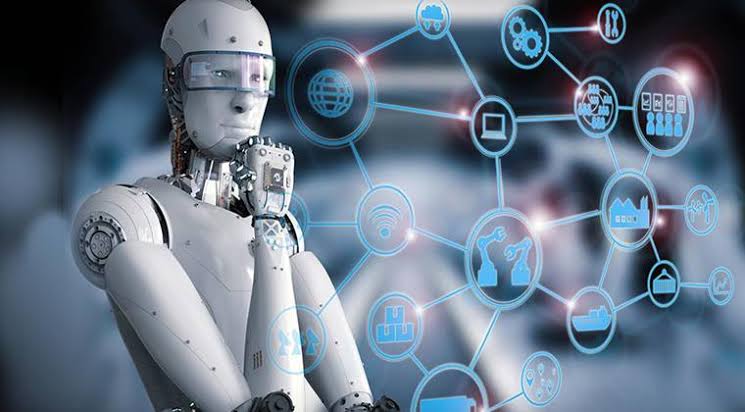Here are the most important consequences of the global transition to artificial meat:
1 – Environmental Impact: The impact on land use, greenhouse gas emissions, water use, and waste disposal of large-scale production of artificial meat.
The environmental impact of a global shift to artificial meat is a complex issue with a range of potential consequences to consider. One of the most significant factors is the impact on land use. Large-scale production of artificial meat could require the cultivation of vast quantities of crops to use as feed, potentially leading to the clearing of natural habitats for agricultural land. This could result in deforestation, soil erosion, and loss of biodiversity, as well as potentially contributing to climate change through the release of carbon from soil and vegetation.
Another key consideration is the impact on greenhouse gas emissions. While artificial meat production is expected to generate fewer emissions than traditional meat production, the overall impact could still be significant. The production of feed crops for artificial meat requires significant energy inputs, and the processing and transportation of the final product also contribute to emissions. As such, a global shift to artificial meat could potentially lead to an increase in emissions if production is not carefully managed.
Water use is also an important factor to consider. Artificial meat production could require large quantities of water for irrigation of feed crops, processing, and cleaning. This could put additional pressure on already scarce water resources in many parts of the world, potentially leading to competition for water between different sectors.
Finally, waste disposal is a critical issue for the production of artificial meat. The waste generated during processing must be managed carefully to prevent pollution and environmental damage. This includes the management of animal waste, as well as the disposal of chemicals and other waste generated during processing.
Overall, a global shift to artificial meat has the potential to significantly impact the environment, both positively and negatively. While it could reduce greenhouse gas emissions and animal welfare concerns associated with traditional meat production, it could also contribute to deforestation, biodiversity loss, and water scarcity. Careful consideration of the environmental impact of artificial meat production is necessary to ensure that it does not result in unintended negative consequences for the planet. This includes developing sustainable production methods, minimizing waste and emissions, and preserving natural habitats and resources.
2 – Livestock Industry: The consequences for the traditional livestock industry, including the displacement of farmers and ranchers, and changes in rural economies.
The shift towards artificial meat consumption could have significant consequences for the traditional livestock industry, which has long been a cornerstone of rural economies around the world. With a reduction in demand for traditional meat products, many farmers and ranchers could face significant financial losses and potentially be displaced from their livelihoods. This could be particularly difficult for smaller-scale and family-run operations that may not have the resources to pivot towards alternative forms of production.
One potential consequence of a shift towards artificial meat is the consolidation of production into larger, industrial-scale facilities. This could lead to a reduction in the number of smaller-scale operations, which may be less competitive in the new market. As such, there is a risk that the shift towards artificial meat could further exacerbate existing inequalities in the livestock industry.
Another potential impact of a shift towards artificial meat is on the rural economies that rely on livestock production. The livestock industry has long been a source of employment and income for many rural communities, particularly in developing countries. A reduction in demand for traditional meat products could lead to a decline in employment and income opportunities, which could have broader implications for local economies.
However, it is worth noting that the development of the artificial meat industry could also create new employment opportunities, particularly in areas such as research, development, and manufacturing. As the industry grows and matures, there may be opportunities for traditional livestock producers to transition into artificial meat production, potentially reducing the impact of the shift on rural economies.
Overall, the consequences of a shift towards artificial meat on the traditional livestock industry are complex and multifaceted. While there is the potential for significant negative impacts on farmers, ranchers, and rural communities, there may also be opportunities for growth and innovation in the artificial meat industry. Careful consideration of the potential consequences and development of policies to mitigate negative impacts will be crucial to ensure a smooth transition to a more sustainable and ethical food system.
3 – Food Security: The potential impact on global food security, including the ability to feed a growing population with limited resources.
A global shift towards artificial meat consumption could have a significant impact on food security, which is already a major challenge facing many countries around the world. As the global population continues to grow, there is an increasing need to produce more food with limited resources, including land, water, and energy. Artificial meat has the potential to be a more efficient and sustainable source of protein, but it is not without its challenges.
One of the potential benefits of artificial meat is that it could reduce the need for large quantities of land and water, which are currently used for traditional meat production. This could free up resources for other types of agriculture, potentially increasing overall food production and improving food security. Additionally, artificial meat could be produced in areas with limited access to traditional meat production, potentially expanding the availability of protein-rich foods in regions where food security is a major concern.
However, there are also potential challenges to consider. The development of artificial meat requires significant energy inputs and could contribute to greenhouse gas emissions if not produced using renewable energy sources. Additionally, the production of artificial meat requires a range of inputs, including plant-based feed, which could put additional pressure on already scarce resources such as water and land.
Another important consideration is the cost of producing artificial meat. While the cost of production is expected to decrease as the technology matures and economies of scale are achieved, it may still be more expensive than traditional meat production in the short term. This could limit access to artificial meat for some populations, potentially exacerbating existing inequalities in food security.
Overall, a shift towards artificial meat has the potential to positively impact global food security by freeing up resources and increasing the availability of protein-rich foods. However, it is crucial that the production of artificial meat is developed in a sustainable and efficient manner, and that access to these products is not limited to only those who can afford them. Careful consideration of the potential impacts on food security will be crucial to ensure that the shift towards artificial meat is a positive step towards a more sustainable and equitable food system.
4 – Health: The possible health implications of widespread consumption of artificial meat, including nutritional value, additives, and long-term effects on human health.
The shift towards artificial meat consumption could have significant implications for human health. While artificial meat has the potential to be a more sustainable and ethical source of protein, there are also potential health risks associated with its consumption.
One concern is the nutritional value of artificial meat. While some artificial meat products are designed to mimic the nutritional profile of traditional meat, others may not provide the same levels of essential nutrients, such as vitamin B12 and iron. This could lead to deficiencies in these nutrients, particularly for populations that rely heavily on meat as a source of protein.
Another potential health concern is the use of additives in artificial meat products. Some artificial meat products may contain a range of additives, such as preservatives and flavorings, which could have negative health effects. Additionally, the long-term effects of consuming artificial meat products are not yet fully understood, particularly in relation to the potential for increased risk of chronic diseases such as heart disease and cancer.
However, there are also potential health benefits associated with the consumption of artificial meat. For example, some artificial meat products are designed to be lower in saturated fat and cholesterol than traditional meat products, which could have positive effects on heart health. Additionally, the reduced risk of foodborne illnesses associated with artificial meat could also have positive health implications.
Overall, the health implications of a shift towards artificial meat consumption are complex and multifaceted. While there are potential risks associated with the consumption of artificial meat, there are also potential benefits, particularly in relation to reduced risk of foodborne illnesses and lower levels of saturated fat and cholesterol. It will be important to carefully consider the nutritional value of artificial meat products, as well as the use of additives, to ensure that they are safe and healthy for widespread consumption. Additionally, continued research into the long-term effects of consuming artificial meat will be crucial to fully understand the potential health implications of this shift.
5 – Economic Impact: The potential impact on the economy, including the rise of new industries, the decline of traditional meat industries, and the cost of production and distribution.
The global shift towards artificial meat consumption is likely to have a significant impact on the economy. While the rise of new industries could create new jobs and opportunities, the decline of traditional meat industries could also have negative economic effects.
One potential economic impact of a shift towards artificial meat is the rise of new industries. The production and distribution of artificial meat products could create new job opportunities and stimulate economic growth in areas such as research and development, manufacturing, and distribution. Additionally, the potential for reduced environmental impact and improved animal welfare associated with artificial meat could also create new markets and opportunities for sustainable agriculture and food production.
However, the decline of traditional meat industries could also have significant economic consequences. The livestock industry is a major contributor to many national and regional economies, and a shift towards artificial meat could lead to job losses and economic downturns in these areas. Additionally, the cost of producing and distributing artificial meat products is currently high, which could limit their accessibility and affordability for consumers, particularly in developing countries.
There are also potential economic implications associated with the regulation and patenting of artificial meat technology. As the technology develops, there may be debates over who owns the intellectual property, which could have significant economic consequences for the companies involved.
Overall, the economic impact of a shift towards artificial meat consumption is complex and multifaceted. While the rise of new industries could create new job opportunities and economic growth, the decline of traditional meat industries could lead to job losses and economic downturns. Additionally, the high cost of producing and distributing artificial meat products could limit their accessibility and affordability for consumers. Careful consideration of the economic implications of a shift towards artificial meat consumption will be important to ensure that it is a sustainable and equitable transition.
6 – Consumer Attitudes: How consumer attitudes towards artificial meat are changing, and the potential impact on the demand for traditional meat products.
Consumer attitudes towards artificial meat have been shifting in recent years, with many people becoming increasingly interested in plant-based and lab-grown meat alternatives. This changing attitude could have significant implications for the demand for traditional meat products.
One factor driving this change in consumer attitudes is concern over the environmental impact and animal welfare issues associated with traditional meat production. As people become more aware of the negative impacts of meat production on the environment and animal welfare, they may seek out alternatives such as artificial meat that offer a more sustainable and ethical option.
Another factor contributing to changing consumer attitudes is the increasing availability and quality of artificial meat products. As these products become more widely available and improve in taste and texture, more people may be willing to try them and incorporate them into their diets.
The potential impact of changing consumer attitudes on the demand for traditional meat products is significant. If more people begin to embrace artificial meat as a viable alternative to traditional meat, the demand for traditional meat products could decline. This could have far-reaching economic and environmental implications, particularly in regions where traditional meat production is a major industry.
However, it is important to note that changing consumer attitudes towards artificial meat are not universal, and many people still have reservations about consuming lab-grown or plant-based meat products. Some consumers may have concerns about the nutritional value, taste, or safety of artificial meat products, and may be hesitant to try them.
Overall, the changing attitudes of consumers towards artificial meat are an important factor to consider in the global shift towards alternative meat products. As more people become aware of the potential benefits of artificial meat and are willing to try it, the demand for traditional meat products could decline, with significant implications for the environment, the economy, and the future of food production.
7 – Animal Welfare: The impact on animal welfare, including the potential to reduce animal suffering and the ethical considerations of creating artificial meat.
The impact on animal welfare is a critical consideration in any discussion about the shift towards artificial meat production. One of the primary advantages of artificial meat is its potential to reduce animal suffering. Traditional meat production involves raising and slaughtering animals on a massive scale, which can lead to significant ethical concerns about animal welfare. By contrast, artificial meat can be produced without harming animals, potentially reducing the amount of animal suffering associated with food production.
Another potential benefit of artificial meat in terms of animal welfare is the ability to address issues such as antibiotic use and animal disease. Traditional meat production often involves the use of antibiotics and other medications to prevent the spread of disease in crowded animal feedlots. This can lead to concerns about antibiotic resistance and other health risks. By producing meat in a lab or using plant-based sources, it may be possible to reduce the use of antibiotics and other medications, thereby improving animal welfare and public health.
However, the creation of artificial meat also raises ethical questions. Some people may be uncomfortable with the idea of lab-grown meat and the fact that it is produced through a process that does not involve traditional animal reproduction. Others may have concerns about the long-term effects of consuming artificial meat, particularly if it is heavily processed or contains additives.
The impact on animal welfare is an important consideration as we continue to explore alternative forms of meat production. While the potential to reduce animal suffering and address issues such as antibiotic use is promising, we must also carefully consider the ethical implications of producing meat in a lab or using plant-based sources. Ultimately, finding a balance between animal welfare, ethical considerations, and the demand for meat products is a complex and ongoing challenge, and one that requires careful consideration and exploration.
8 – International Trade: The possible impact on international trade, including the rise of new export markets for artificial meat and the impact on traditional meat exporters.
The potential shift towards artificial meat production could have a significant impact on international trade. With more countries exploring the possibilities of lab-grown meat or plant-based alternatives, there could be a rise in new export markets for artificial meat products. This could lead to new opportunities for countries that are investing in artificial meat production and potentially create a more level playing field for meat producers worldwide.
At the same time, traditional meat exporters may experience a decline in demand for their products, potentially leading to economic challenges for countries that rely on meat exports as a major source of income. As the global demand for meat shifts, countries that have historically been major meat exporters may need to consider alternative industries or diversify their economies to remain competitive.
Another factor to consider is the regulatory landscape surrounding the production and trade of artificial meat. Some countries may have stricter regulations or trade barriers that could impact the ability to import or export artificial meat products. This could lead to challenges for countries that are investing in artificial meat production and seeking to enter new international markets.
It’s also worth noting that the impact on international trade could vary depending on the type of artificial meat being produced. For example, plant-based alternatives may face fewer regulatory barriers and be more readily accepted in international markets, while lab-grown meat may require more extensive testing and regulation before it can be exported.
Overall, the potential impact on international trade is a complex issue that will require careful consideration as more countries explore the possibilities of artificial meat production. While the rise of new export markets for artificial meat could create new opportunities for some countries, the potential decline in demand for traditional meat products could pose economic challenges for others. As with many of the consequences of a global shift to artificial meat, finding a balance between economic opportunities, ethical considerations, and the demand for meat products will be key to navigating this complex issue.
9 – Job Market: The potential impact on jobs and employment, including the creation of new jobs in the artificial meat industry and the loss of jobs in traditional meat industries.
The potential shift towards artificial meat production could have a significant impact on the job market. As with any major technological or societal shift, there is the potential for the creation of new jobs in the artificial meat industry, as well as the loss of jobs in traditional meat industries.
On the one hand, the development and production of artificial meat will require expertise in fields such as biology, engineering, and food science, which could create new job opportunities in these areas. Additionally, as the demand for artificial meat products grows, there may be a need for workers in areas such as production, marketing, and distribution.
However, the rise of artificial meat could also lead to job losses in traditional meat industries. As the demand for meat products declines, industries such as livestock farming and meat processing may experience a decrease in demand, potentially leading to job losses in these areas. This could have a significant impact on rural economies and communities that rely on traditional meat industries as a major source of employment.
It’s also worth noting that the potential impact on the job market could vary depending on the type of artificial meat being produced. For example, plant-based alternatives may require different skills and expertise than lab-grown meat, which could impact the types of jobs that are created.
Overall, the potential impact on the job market is a complex issue that will require careful consideration as more countries explore the possibilities of artificial meat production. While the creation of new jobs in the artificial meat industry could be a positive development, it will also be important to consider the potential job losses in traditional meat industries and the impact on rural communities. As with many of the consequences of a global shift to artificial meat, finding a balance between economic opportunities and social considerations will be key to navigating this complex issue.
10 – Cultural Implications: The cultural and social implications of a global shift to artificial meat, including the impact on traditional diets, cultural practices, and social norms.
A global shift to artificial meat has significant cultural and social implications that need to be considered. Traditional diets and cultural practices have been shaped by the consumption of meat products for centuries, and a switch to artificial meat could challenge these cultural norms. For example, in some cultures, the consumption of meat is an important part of religious and social practices, and a shift to artificial meat may not be accepted by these communities. Similarly, traditional cuisine and culinary practices may be impacted by a shift to artificial meat, as it may not be able to replicate the same flavors and textures as traditional meat.
In addition to the impact on cultural practices, a shift to artificial meat may also have social implications. For example, the consumption of meat has been associated with social status and wealth in some cultures, and a shift to artificial meat may challenge these social norms. Additionally, traditional meat production and consumption practices have been associated with masculinity, and a shift to artificial meat may challenge gender roles and expectations in some cultures.
Furthermore, the cultural and social implications of a global shift to artificial meat may also have a significant impact on consumer attitudes and acceptance of the technology. Cultural norms and social expectations can play a significant role in consumer behavior, and companies developing artificial meat products will need to consider these factors when marketing their products.
Overall, a global shift to artificial meat has the potential to challenge traditional cultural and social practices, and companies and policymakers will need to carefully consider these implications when promoting and regulating the technology.
Conclusion
In conclusion, the global shift to artificial meat is a complex and multifaceted issue with significant implications for the environment, food security, animal welfare, health, economy, culture, and society. As the world population continues to grow, and resources become more scarce, the development of sustainable and ethical food production methods is more critical than ever. Artificial meat, as an alternative to traditional meat products, has the potential to reduce the negative impacts of animal agriculture, such as greenhouse gas emissions, land use, and water consumption, while improving animal welfare.
However, the adoption of artificial meat also raises important questions and concerns that must be addressed before it can become a viable alternative on a global scale. The potential economic impact on traditional meat industries, the health implications of widespread consumption, the ethical considerations of creating artificial meat, and the cultural and social implications must be carefully considered.
Furthermore, the success of artificial meat will depend on consumer attitudes and preferences, as well as government policies and regulations that encourage its development and adoption. Despite the challenges and uncertainties, the potential benefits of a global shift to artificial meat are vast, and the opportunities for innovation and progress are significant.
In the end, the shift to artificial meat is not only a technological development, but also a social and cultural phenomenon that will require collective action and cooperation among individuals, governments, and industries. It is essential to take a holistic and balanced approach to this issue, considering all the potential consequences and benefits, and working towards a sustainable and ethical food system for the future.
References:
1 – Food Safety and Quality Systems in Developing Countries, Volume 2: Case Studies of Effective Implementation – edited by Md. Mahfuzul Hoque, Sofia Boqvist, Rezaul Karim, Md. Amran Hossain, A. K. M. Rabiul Islam (2021)
2 – The Ethics of Food – edited by Gregory E. Pence (2013)
3 – The Future of Food: How Digital Technology Will Change the Way We Feed the World – by Caleb Harper (2019)
4 – Sustainable Food Futures: Multidisciplinary Solutions – edited by Melissa L. Finucane, C. Anne Clausen, W. George Scarlett (2021)
5 – Meatonomics: How the Rigged Economics of Meat and Dairy Make You Consume Too Much – by David Robinson Simon (2013)
6 – Livestock’s Long Shadow: Environmental Issues and Options – by Henning Steinfeld, Pierre Gerber, Tom Wassenaar, Vincent Castel, Mauricio Rosales, Cees de Haan (2006)
7 – The Meat Racket: The Secret Takeover of America’s Food Business – by Christopher Leonard (2014)
8 – Meat Planet: Artificial Flesh and the Future of Food – by Benjamin Wurgaft (2019)
9 – Eating Animals – by Jonathan Safran Foer (2009)
10 – Plant-Based Diets for Cardiovascular Safety and Performance in Endurance Sports – by Joachim Mester, Benjamin Clarsen, Anita Bean, Alessandro Lucchese, S. Melina, D. B. Dwyer (2022)












